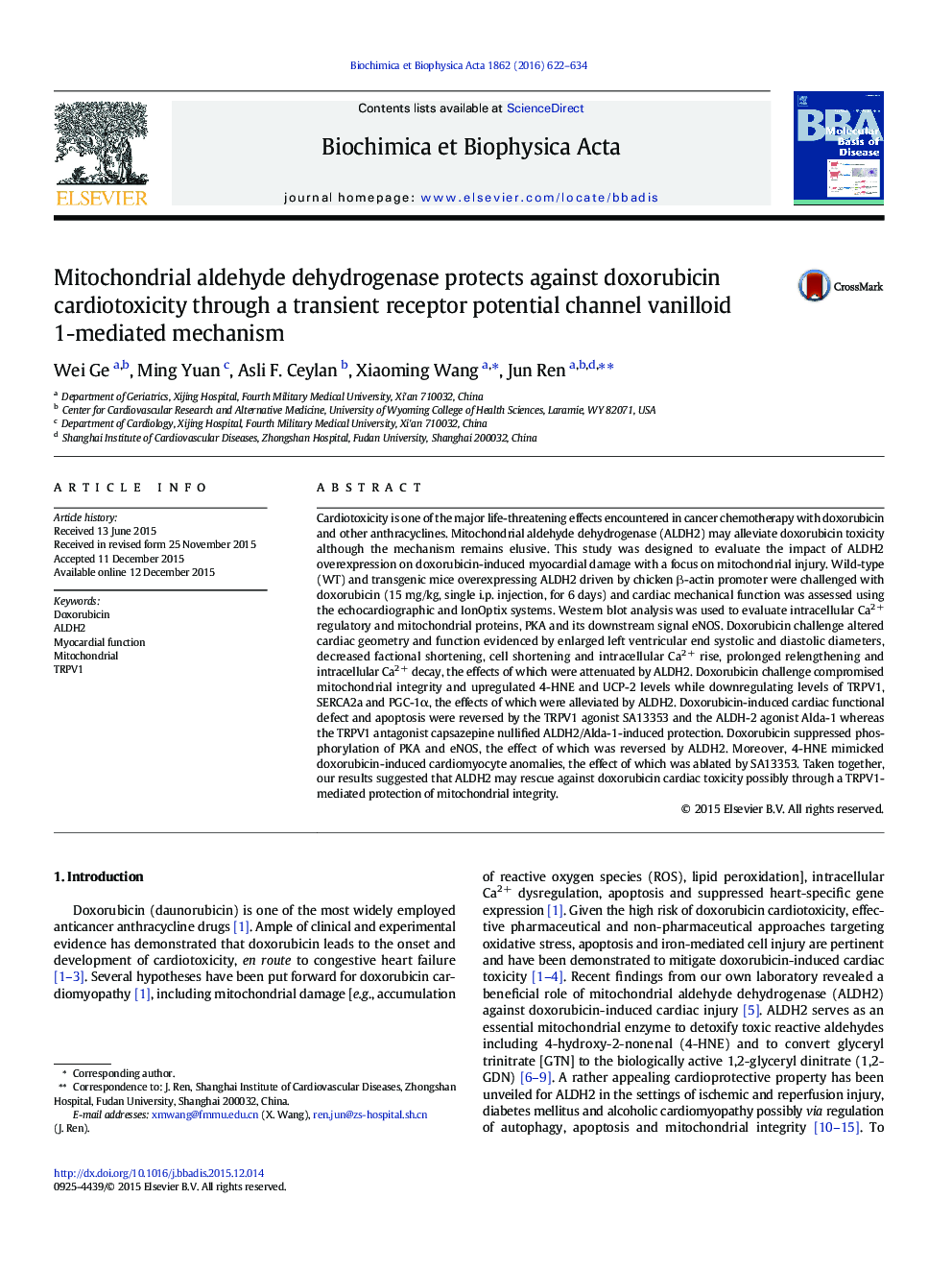| Article ID | Journal | Published Year | Pages | File Type |
|---|---|---|---|---|
| 8259470 | Biochimica et Biophysica Acta (BBA) - Molecular Basis of Disease | 2016 | 13 Pages |
Abstract
Cardiotoxicity is one of the major life-threatening effects encountered in cancer chemotherapy with doxorubicin and other anthracyclines. Mitochondrial aldehyde dehydrogenase (ALDH2) may alleviate doxorubicin toxicity although the mechanism remains elusive. This study was designed to evaluate the impact of ALDH2 overexpression on doxorubicin-induced myocardial damage with a focus on mitochondrial injury. Wild-type (WT) and transgenic mice overexpressing ALDH2 driven by chicken β-actin promoter were challenged with doxorubicin (15 mg/kg, single i.p. injection, for 6 days) and cardiac mechanical function was assessed using the echocardiographic and IonOptix systems. Western blot analysis was used to evaluate intracellular Ca2 + regulatory and mitochondrial proteins, PKA and its downstream signal eNOS. Doxorubicin challenge altered cardiac geometry and function evidenced by enlarged left ventricular end systolic and diastolic diameters, decreased factional shortening, cell shortening and intracellular Ca2 + rise, prolonged relengthening and intracellular Ca2 + decay, the effects of which were attenuated by ALDH2. Doxorubicin challenge compromised mitochondrial integrity and upregulated 4-HNE and UCP-2 levels while downregulating levels of TRPV1, SERCA2a and PGC-1α, the effects of which were alleviated by ALDH2. Doxorubicin-induced cardiac functional defect and apoptosis were reversed by the TRPV1 agonist SA13353 and the ALDH-2 agonist Alda-1 whereas the TRPV1 antagonist capsazepine nullified ALDH2/Alda-1-induced protection. Doxorubicin suppressed phosphorylation of PKA and eNOS, the effect of which was reversed by ALDH2. Moreover, 4-HNE mimicked doxorubicin-induced cardiomyocyte anomalies, the effect of which was ablated by SA13353. Taken together, our results suggested that ALDH2 may rescue against doxorubicin cardiac toxicity possibly through a TRPV1-mediated protection of mitochondrial integrity.
Related Topics
Life Sciences
Biochemistry, Genetics and Molecular Biology
Ageing
Authors
Wei Ge, Ming Yuan, Asli F. Ceylan, Xiaoming Wang, Jun Ren,
